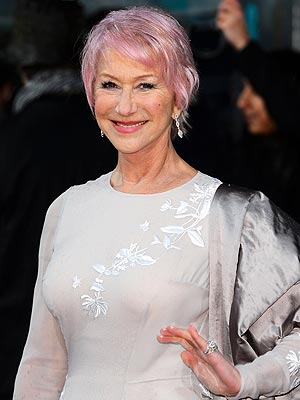BEIJING — The Snake is determined and smart, according to traditional Chinese beliefs. Today is New Year’s Day in China, the first day in the Year of the Snake, and a good day to ask: Will Xi Jinping, a “snake” set to become president in March (Mr. Xi was born in a Year of the Snake, in 1953) bring change to China?
Whether or not one believes in feng shui — the thought system based on geomancy, astronomy and folk wisdom of which the 12-yearly animal cycle is part — many here swear by it, and that makes the confluence of the man and the year important.
As the rational economist He Fan said last year, at the beginning of the Year of the Dragon: Feng shui may not be rational, but it is “symbolic,” “and that’s important, because that’s how China’s political culture works.”
So as ordinary people across the nation settle into their hard-earned, weeklong holiday amid the thunder of festival firecrackers, some are wondering whether recent calls by Mr. Xi to attack corruption and “criticize sharply” the ruling Communist Party will bring unwelcome shocks to members of the privileged classes in China, including the party, the government and state-run companies, widely seen as too powerful and too corrupt.
Skepticism about real change is rife, for sure, but signs say maybe, at least to some degree. And if that sounds woolly, it is because making predictions in China is notoriously difficult. Yet it is also important as the nation grows in international stature: As Bloomberg News notes, 2012 may have marked the year when China became the world’s largest trading nation. China was last the world’s biggest economy during the Qing dynasty, Bloomberg noted (though back then it didn’t focus on trade, Bloomberg wrote).
Some say the change has already begun, amid a deepening campaign against corruption announced by Mr. Xi after he was appointed general secretary of the party in November. The state’s anti-corruption warnings are being taken more seriously now than at any time in the past decade because they come from Mr. Xi, who is regarded as potentially a strong leader fast establishing his dominance, already the most eminent member of the seven-man Standing Committee of the Politburo, China’s inner circle of power.
One sign: Traditionally lavish end-of-the-year parties thrown by powerful state-owned companies, and thus paid for from the public purse, have been canceled in large numbers, causing great satisfaction among ordinary people as high-end restaurants in Beijing are suddenly available for traditional New Year family dinners. In previous years, getting a booking was impossible. This year, it’s not.
Another sign: a recent call by Mr. Xi for “sharp criticism” of the Communist Party.
“Chinese leader Xi Jinping has urged the Communist Party of China (CPC) to be more tolerant of criticism and receptive to the views of non-communists,” Xinhua, the state-run news agency, reported last week.
“The CPC should be able to put up with sharp criticism, correct mistakes if it has committed them and avoid them if it has not,” Xinhua quoted Mr. Xi as saying, adding that nonparty members should “have the courage to tell the truth, speak words jarring on the ear, and truthfully reflect public aspirations.”
The call has been — what else? — sharply criticized, in fast and furious microblog postings showing just how deep is the well of resentment against the state’s heavy hand in some quarters.
Shortly after 9 a.m. on New Year’s Day, Ai Weiwei, the artist, snapped on his Twitter account: “First sentence of the New Year, release all political prisoners.”
The South China Morning Post, a Hong Kong newspaper, gathered more acerbic responses:
The venture capitalist Kai-Fu Lee: “Will you stop silencing and shutting down microblog accounts?”
Xu Xiaonian, an economics professor: “Will you stop censoring books and media reports?”
Chen Tongkui, an academic: “Will you stop press censorship?”
Wang Xiaoyu, another academic: “Can you not delete the comments on this microblog post?”
The real estate magnate Ren Zhiqiang: “Will you stop criminalizing people’s speech and sentencing them to re-education through labor?”
Cui Weiping, an academic: “Will you put an end to police harassment” of activists and netizens?
Yet, for many ordinary Chinese, there is hope. Incomes are rising, and there is a whiff of, yes, change in the air. In a recent, colorfully presented survey by TNS, part of Kantar, an information and consulting group, 88 percent of people surveyed in China were positive about the Year of the Snake, the company said.
As Mr. He said of last year, which saw the dramatic downfall of the political scion Bo Xilai, seen by some as a contender for Mr. Xi’s position, amid a murder and corruption scandal: “Something happens in every Dragon Year, even if it’s just a turning point.” Often, the real action begins a year or two later.













